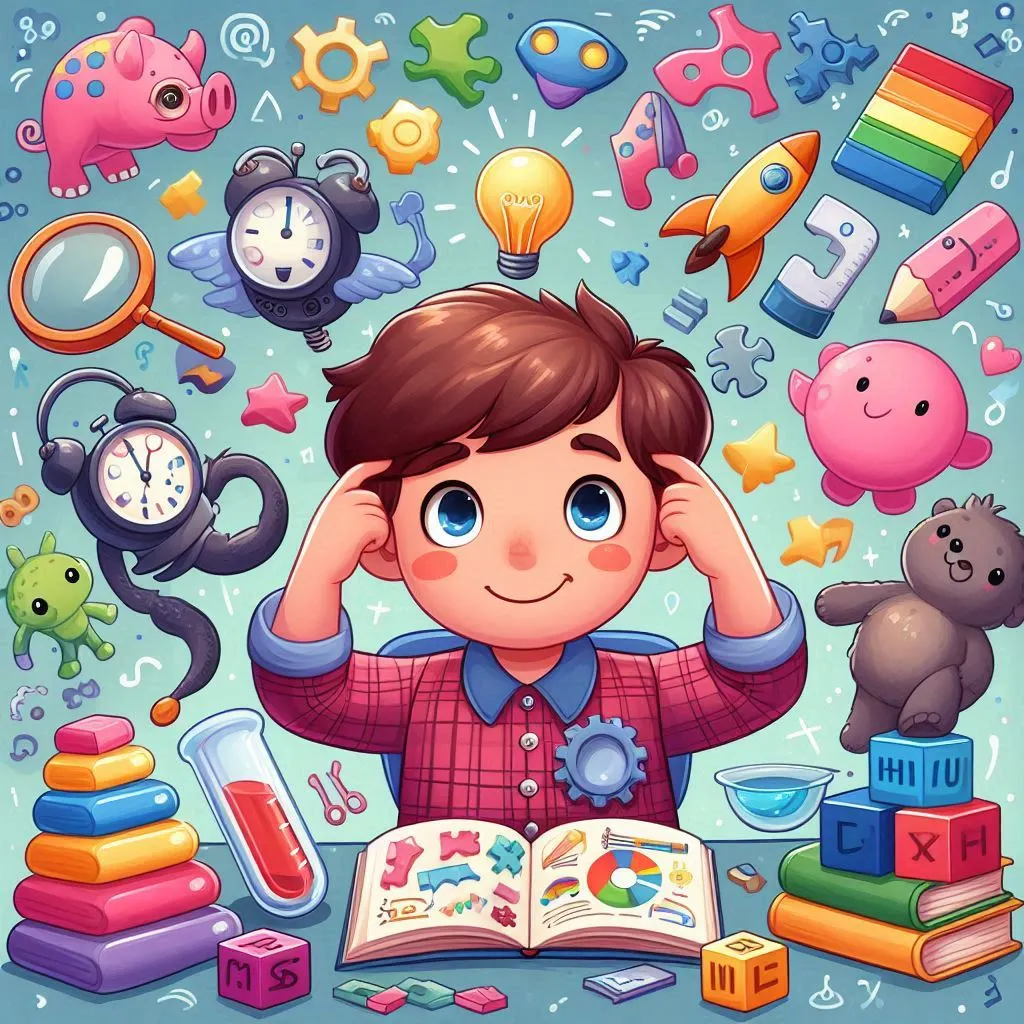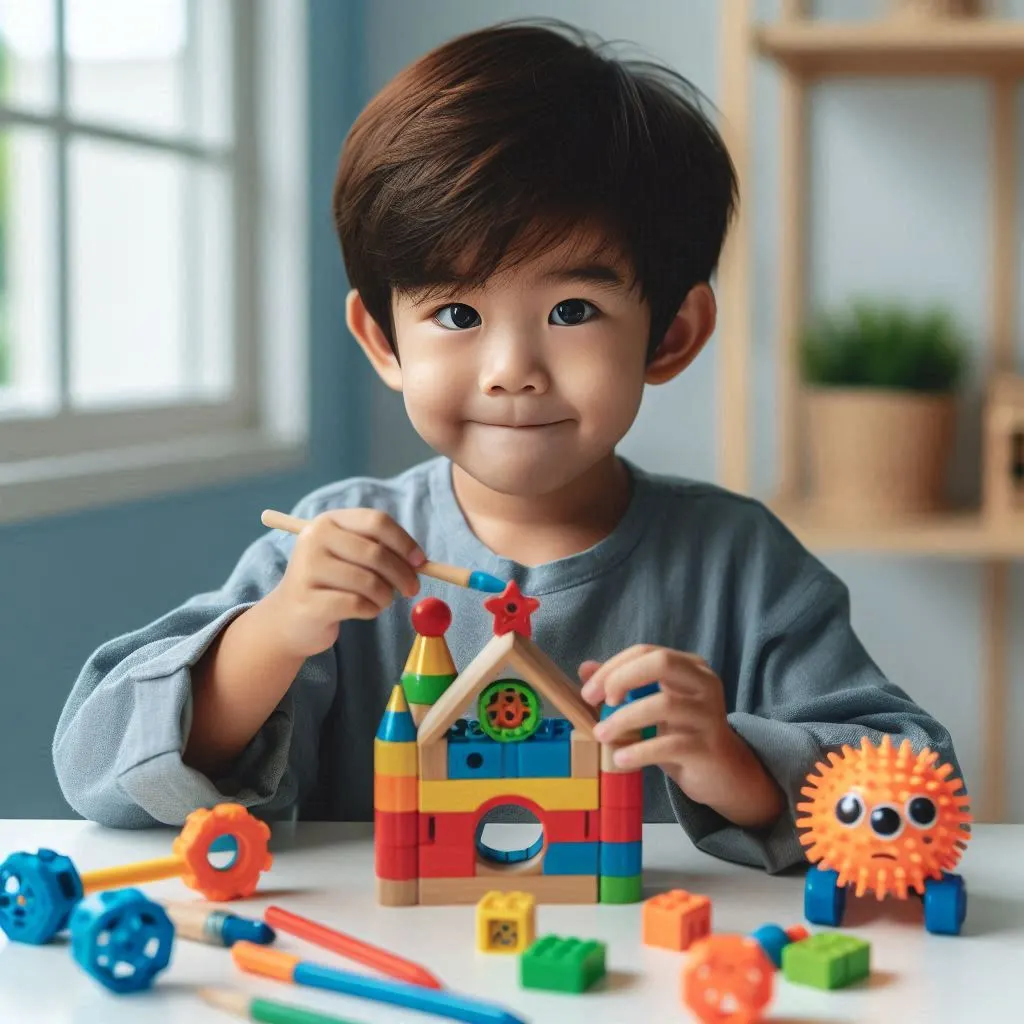
The world is filled with challenges, yet there aren’t enough problem solvers. We’ve shifted to being problem-oriented instead of solution-focused, and this needs to change. Kids face daily challenges, from toy issues to math problems and peer pressure.
Parents and teachers can’t always be available to solve these problems. Instead, instilling problem-solving skills in kids is essential for them to handle challenges independently, fostering robustness, confidence, and independence.
In 2023 National Library of Medicine conducted a study to assess the association between problem-solving skills and suicidal behaviors and elucidate the potential role of problem-solving skills in influencing the occurrence of suicidal behaviors.
Kids often avoid issues or make impulsive decisions when faced with problems. Problem-solving is fundamental to their learning capacity. Parents should allow kids to make mistakes and guide them forward. A responsive, accepting attitude fosters a child’s growth effectively.
Today’s generation is immersed in technology from an early age. Middle-schoolers are learning to code, elementary students are troubleshooting computers, and even infants know how to play videos on their parent’s phones. The pervasive presence of technology is reshaping childhood experiences.
For modern caregivers, especially those who grew up with less technology, this shift can be challenging. Unlike today’s kids, many parents enjoy outdoor play, bike rides, and reading books. Now, children have tablets at age 5, smartphones at age 8, and laptops by age 10.
Balancing parenting and technology is intricate, especially for those who had low-tech childhoods. Finding the right balance is key. Did you know that 56% of working parents struggle with work-life balance? 60% of moms and 52% of dads find it challenging. This challenge has become even more demanding today.
However, AI-powered gadgets can alleviate some burdens by handling tedious tasks, freeing up time for family. Modern technology, when used responsibly, can enrich children’s lives and prepare them for the future.
Parents should teach their children that technology is an early introduction to technical education, paving the way for future endeavors. Early exposure to coding, robotics, machine learning, and AI helps children see technology as a tool for creation, not just consumption.
Think of yourself not just as a mentor or parent but as an observer, supporter, and facilitator. Share your problem-solving approaches with your children.
To teach kids problem-solving skills, consider these strategies to help develop a solution-focused mindset from an early age.
To start with, make your child feel comfortable about making mistakes. Everyone faces trouble and it’s okay to make mistakes. Now, when you face a real-world challenge, do a “think aloud” for your child and model the same problem-solving skills that you’re undergoing for them to implement in their lives.
When you model problem-solving and deal with situations outside of yourself, things sometimes get out of control and solutions don’t work and it’s important to tell your child just that. One should focus on what can be controlled.
Recommended reading: Parenting Through Transitions: Supporting Kids During Life Changes

When you form a clear image of your problem and learn about its roots, your work is almost half done. Help your children by stating their problems loudly. A lot of times they feel confused and stuck as to what is bothering them. A sense of clarity is hugely beneficial to problem-solving.
Recommended reading:
The Power of Positive Parenting: How to Build a Strong Parent-Child Bond
It’s not just kids who face problems, all of us do. Sometimes what we can do as parents is turn to our kids for solutions to our problems. Firstly, it tells them that anybody can make mistakes. Secondly, it allows them to be in someone else’s shoes and practice problem-solving. Moreover, if they do provide genuine, sensible solutions that you, later on, implement in your life, it’d give them immense confidence and boost to solve their problems without a hassle.
Parenting Fact: You will realize that folding baby clothes is akin to torture—worse sometimes than folding a fitted sheet.

It is very natural for parents to reach out to their children if they see them struggling in any way, but sometimes you need to allow them to undergo important changes while they struggle. You must allow your child to fail and learn from the experiences and the consequences. By not providing a solution, you are helping them to strengthen their mental muscles to come up with their ideas. Sometimes, the problem could be bigger for them to understand on their own. In such situations, break the problem into smaller steps, help them understand, and ask questions that may incite a solution.
There are a lot of fun-learning, STEM challenges and activities going around that encourage creative play as well as problem-solving skills. Why not make construction sites from toys? How about saving a city in turmoil from available material?
Kids of all ages learn most in the context of the play. This type of play involves challenges and requires imagination. Eventually, problem-solving becomes its own reward.
Parenting fact: You will hold off on spending money on yourself if it means buying a special toy for your kid.

A healthy relationship is an important element for the exchange of problem-solving. At times you might have different views and a plan of action toward a certain problem, but if you share a good bond, you would be able to inculcate disparate views into a single solution. Children should be able to take on a new perspective.
There is a great emotional burden that we all carry within ourselves. First of all, you need to tell your child that all their emotions are valid and acceptable. Only once they learn to manage their emotions will they be able to consider logical solutions. All emotions are valid and should never be discarded, what matters is how we respond to these emotions.
Parenting fact: The majority of your meals will either be eaten super fast or while you are standing at the counter.

Sometimes, you should just allow natural consequences to take charge of a situation and give vital lessons to your child. If they’re in a troublesome circumstance, let the situation unfold and take them where it wants to take them and see how they respond. Just make sure it is safe to do so. Consider these natural consequences as a teachable moment to help work together on problem-solving.
According to research, problems get solved during play. Sometimes, simply sitting and constantly banging your head over a problem doesn’t provide anything. If that’s the case, probably one should go out and play. Do activities that take your child’s mind off of the problem so they can refuel and approach things from a fresh perspective. Sometimes, solutions arrive when we’re not seeking them.
Parenting fact: Despite the promises you make to yourself, your kids will get their grubby hands on your iPhone.

If we’re too worried and massively unwilling to see our children fail in life, then we’re holding back our children from learning. Failure is a part of life just like anything else and it should not be seen in a bad light. Allow the failures to come and pass. Meanwhile, make sure your children are moving towards a growth mindset.
Conclusion
Acquiring the ability to tackle challenges is a crucial life competency. Developing these aptitudes not only empowers children to achieve self-reliance and boost their self-esteem but also prepares them for triumph in academics, leadership, social interactions, sports, financial management, health, leisure activities, and various facets of life. If we’re too worried and massively unwilling to see our children fail in life, then we’re holding back our children from learning. Failure is a part of life just like anything else and it should not be seen in a bad light. Allow the failures to come and pass. Meanwhile, make sure your children are moving towards a growth mindset.
Looking for a comprehensive parenting guide to ensure you are on the right track? Explore a wealth of parenting wisdom and educational insights in Moonpreneur’s blogs. Additionally, you can join our programs that nurture the next generation of innovators. Book a free trial now!

























